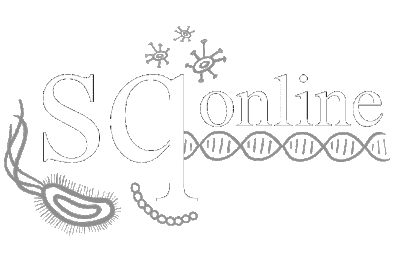Every week our Research Editors highlight a few of the latest headlines in science news and explain why these pieces are interesting and applicable to our classes at UC San Diego. If you find an engaging science article, share it with us on our Facebook page and your highlight may just be featured!
Long-Acting Shot Prevents Infection with HIV-Like Virus | Scientific American
Scientists are researching an antiviral drug that, when injected periodically, could prevent HIV infection. The experimental drug, GSK744, interferes with the enzyme that HIV uses to insert its DNA into the host cell’s genome, preventing it from replicating. The drug is thought to stay effective for up to three months in humans, although it has only been tested on macaque monkeys. This injection has the potential to be an important preventative measure against HIV infection.
If you are interested in HIV, consider taking AIDS, Science, and Society (BILD 36/BICD 136).
– Jasmine Chau | Sr. Research Editor
Next-Generation Stem Cells Transplanted in Human for the First Time | Scientific American
Researchers have been able to grow retinal tissue from induced pluripotent stem cells and implant them into a patient. Induced pluripotent stem cells have great potential because they have the same advantages as embryonic stem cells but do not raise as many ethical issues, as they come from other cells in the patient. In this procedure, scientists took the patient’s skin cells, induced them to differentiate into retinal cells, and successfully transplanted them into the patient’s eye.
If you are interested in cellular biology, consider taking Cell Biology (BICD 110).
– Jasmine Chau | Sr. Research Editor
Scientists trigger self-destruct switch in lung cancer cells | Science Daily
Researchers have discovered a drug combination that can initiate a self-destruct protocol in lung cancer cells. When healthy cells are no longer in use, they undergo a series of events that trigger self-destruction, known as apoptosis. Cancer cells have found a way to avoid cell apoptosis, allowing them to essentially be immortal and spiral out of control. Scientists at the University College London (UCL) Cancer Institute have successfully fixed this critical flaw and have reprogrammed cancer cells to self-destruct, primarily through the combination of two drugs – TRAIL and a CDK9 Inhibitor. This discovery has the potential to revolutionize cancer treatment, as this process allows for the destruction of solely cancer cells, leaving other body cells unharmed. Further research is currently being conducted to see if this drug combination can be used for the treatment of other types of cancer as well.
If you are interested in learning about the metabolism of cancer cells, consider taking Biology of Cancer (BIMM 134).
– Neil Srinivas | Jr. Research Editor
Cancer cell fingerprints in blood may speed up childhood cancer diagnosis | Science Daily
Researchers at the University of Cambridge have identified unique molecular fingerprints for 11 types of childhood cancer tumors. These cancer cell fingerprints in the blood could potentially be used to develop blood tests that will diagnose childhood cancer tumors without the need for surgery. This could eventually result in quicker and more accurate methods to treat children’s tumors, as the diagnosis process could take a matter of hours rather than days or weeks. While further studies are necessary prior to validation and incorporation into clinical practice, it is evident that this discovery could revolutionize the diagnosis and treatment of childhood cancers.
If you are interested in learning about the metabolism of cancer cells, consider taking Biology of Cancer (BIMM 134).
– Neil Srinivas | Jr. Research Editor

